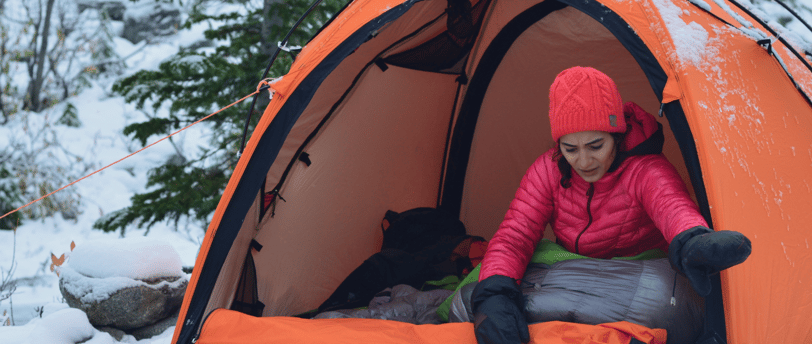6 Things to Consider When Choosing a Winter Tent
HIKING & CAMPING GEAR
3/24/20242 min read


When it comes to winter camping, choosing the right tent is crucial for staying warm, dry, and comfortable in harsh winter conditions. Unlike camping in warmer seasons, winter camping presents unique challenges such as freezing temperatures, high winds, and heavy snowfall. To ensure a safe and enjoyable winter camping experience, it's essential to select a tent that is specifically designed to withstand the rigors of cold weather camping. Here are some key factors to consider when picking the right tent for winter camping:
Four-Season Design: Opt for a tent specifically labeled as a "four-season" or "winter" tent. These tents are engineered to withstand harsh winter conditions, including heavy snow loads, strong winds, and low temperatures. Unlike three-season tents, which are designed primarily for use in mild weather, four-season tents feature robust construction, reinforced poles, and durable fabrics to provide reliable protection in winter environments.
Weather Resistance: Look for a tent with excellent weather resistance to keep you dry and protected from the elements. Features to consider include waterproof materials, taped seams, and a full-coverage rainfly that extends all the way to the ground to prevent snow and rain from seeping inside the tent. Additionally, choose a tent with a sturdy frame and reinforced guy lines to withstand strong winds and heavy snow accumulation.
Ventilation: Proper ventilation is essential for managing condensation inside the tent and preventing moisture buildup, which can lead to dampness and discomfort. Look for a tent with adjustable vents or mesh panels that allow for airflow while still providing protection from wind and snow. Ventilation features should be easily accessible and adjustable to accommodate changing weather conditions.
Size and Space: Consider the size and layout of the tent to ensure that it provides adequate space for you and your gear. While smaller tents are lighter and more compact, larger tents offer more room to move around and store gear, which can be beneficial for extended winter camping trips. Look for tents with vestibules or gear lofts for storing wet or bulky gear outside the sleeping area, keeping the interior clean and dry.
Ease of Setup: In cold and snowy conditions, the last thing you want is a complicated tent setup process. Choose a tent with a simple and intuitive design that allows for quick and easy assembly, even with cold hands or in low visibility conditions. Features like color-coded poles, clips, and intuitive tent geometry can streamline the setup process and minimize frustration during winter camping trips.
Weight and Packability: While durability and weather resistance are paramount for winter camping tents, it's also essential to consider weight and packability, especially if you'll be carrying the tent on backpacking trips. Look for lightweight materials and compact designs that won't weigh you down or take up too much space in your pack.
By considering these factors and choosing a tent that is specifically designed for winter camping, you can ensure a safe, comfortable, and enjoyable outdoor experience even in the coldest and snowiest conditions. Whether you're embarking on a multi-day backcountry expedition or enjoying a weekend camping trip in the mountains, the right tent will be your home away from home in the winter wilderness.

